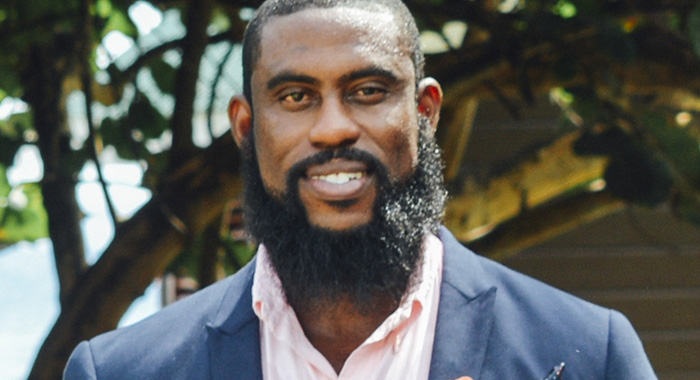By Eddy Smith
Everyone has developed an image of what we believe a criminal looks like. We are constantly bombarded by various news media outlets that spare no details, overloading our senses and shaping our opinions of the so-called “miscreants” of our society. This relentless portrayal makes it incredibly difficult to turn off these perceptions, often leading to the mislabelling of individuals.
But who can blame us? After all, we have all witnessed a cultural shift, trading in our historically collectivist society to one that increasingly values individualism adopting a mentality of “you dey on yo own”.
In such an environment, most of our youth stand little chance against the preconceived notions we hold about them. It takes tremendous resolve and strength to defy such a negative narrative. Many young people are unfairly judged and labelled before they even have the opportunity to prove themselves otherwise. The challenge lies not just in their actions, but in overcoming the deeply ingrained stereotypes that society imposes upon them.
Recognising this tendency in my own interactions with certain youth, I find myself needing to reflect deeply. I’ve been unfairly labelled myself and know the sting of being judged based on negative stereotypes. I remember discouraging a loved one from helping someone who claimed they were “in need,” which made me realise the importance of reassessing my beliefs. This self-appraisal is challenging because, despite the unfair labels, many misguided youth do exploit the kindness and ignorance of well-meaning people who genuinely want to help. This was the context in which I gave what I thought was appropriate advice, but I don’t want to live in that paradigm where I have to second-guess every interaction for fear of being taken advantage of. Honestly, what type of life is that? Aren’t we supposed to be the custodians of the society we want to grow old in? And should this way of thinking become the norm?
For fear of my conscience chastising me for being a hypocrite, I sought absolution. While walking through our capital, my inner spirit guided me in a direction where I met a young man who literally passed the “check for my wallet” test. But he was more than a stereotype; he was a human, a brother, a vessel overflowing with potential. He had a scheming smile that made every ounce of me want to part company, but something inside me chided, “Look at him again.” I am really happy I listened.
I am not saying to trust everyone we meet (God no). I am not even saying to turn off the discerning spirit that warns us about individuals who prey on weakness. What I want to encourage is for us to look again, even if it doesn’t lead to action, because that second look may awaken something in us that can help a situation or two. Not all help has to be financial; sometimes, money can be the noose around people’s necks leading to their ruin. Whatever that still, small voice inspires you to do, I trust that it’s loud enough for you to listen. Something is seriously missing in our society, and I have a feeling that looking at our society through a lens of love may be the nudge we need, even if it’s just to create an awareness of where we erred.
When I was a boy, my father presented me with a book called “Think Big: Unleashing Your Potential for Excellence” by Dr. Ben Carson. Dr. Carson’s life is an example of what it takes to rise above considerable hardships. Born in Detroit, Michigan, into a poor family, Carson faced numerous challenges from an early age. His mother, Sonya, who had only a third-grade education, raised Ben and his brother alone after separating from their father. Despite their financial situation, Sonya instilled in her sons the value of education, hard work, and faith. To provide structure and keep them from wasting time, she set rules: limiting leisure time, requiring them to read two library books each week, and submit written reports, even though she could barely read them. This unwavering belief in their potential and the discipline she enforced laid the foundation for Carson’s future success.
Given Carson’s humble beginnings, it would have been easy for many to assume he would become a statistic, especially considering he came from a single-parent home. However, several individuals looked beyond these surface assumptions and saw his potential. Teachers who recognised his budding interest in science encouraged him, sparking a passion that would define his career. At Yale University and the University of Michigan Medical School, mentors and professors provided him with the guidance and knowledge necessary to excel in his field. Colleagues at Johns Hopkins Hospital, where he became the youngest major division director in their history, also supported his ground-breaking work. These individuals viewed Carson through a lens of love and potential rather than judgment, helping him overcome the obstacles of poverty and achieve remarkable success as a world-renowned neurosurgeon.
If we look past the surface distractions of those around us, there’s no telling what we might discover and inspire in those we interact with. My hope is that we hold ourselves accountable and remember that, even though we may not be pulling triggers or snatching bags, we are, in some way, shape, or form, contributing to the society we currently abhor. By looking for the humanity in people, through a lens of love, and seeing past their defects — actual or imagined — we can foster the changes we desire.
In essence, each of us has the power to make a difference. By choosing to see the potential in others and offering support and understanding, we can create a ripple effect of positive change.
The opinions presented in this content belong to the author and may not necessarily reflect the perspectives or editorial stance of iWitness News. Opinion pieces can be submitted to [email protected].






